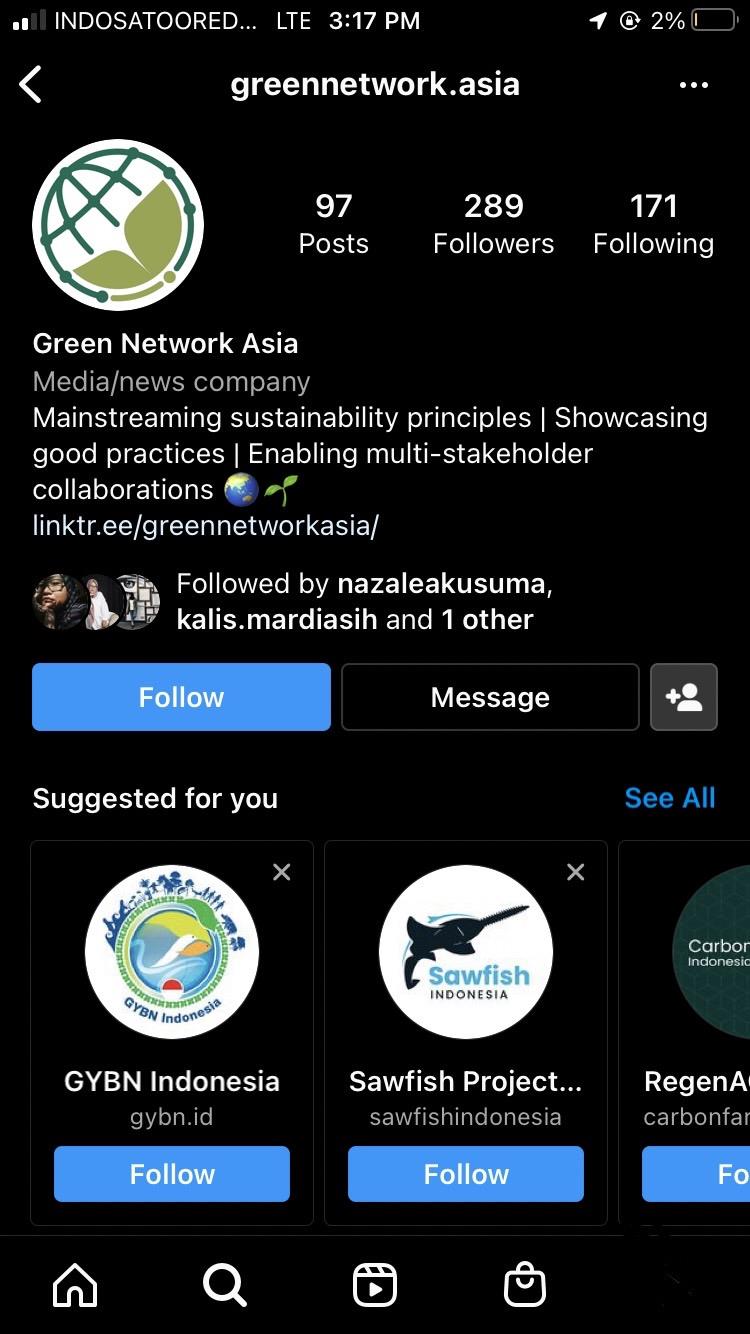Intro to Digital Activism: Engage Responsibly

Photo by Adrienn on Pexels
The internet has changed many aspects of the world we live in. Among others, it has changed activism (digital activism).
More and more people are partaking in online discourse and movements. Through digital media, it becomes easier for those who are often disregarded in offline spaces to obtain and share information, find or create safe spaces, and engage in discussions.
Getting to Know Digital Activism
Bennett and Segerberg, in “The logic of connective action: Digital media and the personalization of contentious politics”, pointed out how movements such as the Arab Spring, the European Indignados, Occupy Wall Street, or more recently #MeToo and #BlackLivesMatter all had something in common: the fact that digital media played a big part in boosting them, with little to no involvement from conventional social movement organizations.
Digital media has helped democratize information and provide spaces for marginalized voices. Through it, they are able to work independently or collectively to oppose dominant structures and create social change. The nature of networked publics allows these opposing narratives to scale up quickly and be heard by the majority.
These days, it is no longer uncommon to wake up, go on Twitter, and find that the nation, or even the world, is in an uproar over a newly spilled oil tank in the ocean or about another woman speaking up about a sexual assault. Even Tiktok can be another place to learn about environmental issues and sustainability.
It is easy to just like or retweet a post and get on with your day. However, this same feature that enables movements to scale up quickly also allows them to die down just as quickly.
Threading Carefully & Responsibly
For those of you who want to do more and not succumb to “clicktivism”, to learn more about an issue and help keep a movement alive, we have a few tips for you to keep in mind as you dip your toes in digital activism:
1. Have constant care and willingness to learn
During #BlackLivesMatter, many people across social media platforms pointed out how the movement is not a trend and how it is important to continue caring, learning (and unlearning) about racial matters even after the hashtag stops trending. With the short life span of viral contents on the Internet, it is important to remember that social issues are not magically solved after they stop trending.
Every movement has existed for years with a long history and is an ongoing fight. Therefore, as someone who has just come across a certain social issue, it is important to actually care and search up more about it and look for ways to apply what you’ve learned in your everyday lives.
Of course, there are a million inequalities and issues on this Earth and it is impossible to be equally informed about each one. Still, intersectionality shows that all of these issues are intertwined. To eradicate discrimination and be liberated from oppression, one must at least be aware and care about other forms of oppression.
2. Follow accounts, medias, and other sources of information regarding that issue
First of all, you can start by searching up keywords and terms that were previously unfamiliar to you. Read articles and books to do with the issue, those that were written by those who are directly impacted.

Use social media algorithms to your advantage. By following an account that talks about that issue on Instagram, you can find other related accounts through their “Suggested for you” feature. On Twitter, you can follow certain Topics and tweets related to that topic will show up on your feed.
Following an activist or a researcher who is active in the movement can help open the gates for more information regarding the issue that you care about. It can also be as simple as widening your circles and following people from marginalized communities, who can offer you an insight into their everyday lives and the struggles they face.
3. Be aware of echo chambers and try to break out of them
Although algorithms can greatly help you, they can also be your downfall. Countless research has uncovered the harms of algorithms, such as the echo chamber.
As explained in this study, “an echo chamber can act as a mechanism to reinforce an existing opinion within a group and, as a result, move the entire group toward more extreme positions.”
Social media algorithms feed you information and opinions similar to your own and can perpetuate inaccuracies and biases. Although there is no way to avoid echo chambers completely, in this The Guardian article, David Robert Grimes advises us to:
- Analyze our sources
- Learn not to cling to something just because it confirms our beliefs, and be willing to change our views after being presented with accurate and reliable evidence.
4. Check and reflect on your sources and yourself
When it comes to matters of inequality, it is crucial to reflect on your source. Who is speaking? Where do they stand in this matter? Are they the ones experiencing the oppression or living and suffering from the direct effects of the matter?
For example, the experiences of being a woman in Japan are best told by a woman in Japan.
We must prioritize listening to those who are directly impacted, part of the community, or marginalized. If we are not part of the community, it is important to pass the mic and learn to shut up on topics we do not understand or are inexperienced with.
Other than reflecting on the source of information, it is just as important to self-reflect. In “Networked feminism: counterpublics and the intersectional issues of #MeToo”, Verity Trott emphasized the importance of “engaging in reflexivity about one’s standpoint and positioning within society when engaging in conversations about lived experience and political debates.”
It has become a common practice in marginalized communities to state the positionality and identity of the speaker when discussing social issues. This is because people from different backgrounds have different lived experiences which affects their stance on certain issues.
Going Offline & Touching Grass

Digital activism has its drawbacks.
In “The Digital Divide: The Internet and Social Inequality in International Perspective”, Massimo Ragnedda and Glenn Muschert explained about uneven access to the internet and, just as importantly, uneven ways in which the internet is used by different groups of people.
“The digital divide could be seen as a way in which the social inequalities are (re)produced (not to mention consumed) in the digital age using the new technologies of communication.”
Many parts of the world do not have sufficient infrastructure for Internet access. Therefore, they are not present and hardly represented in online discussions.
Other than that, ethnicity, age, gender, levels of education, and socio-economic background and status also factor into digital literacy levels and how people utilize and are received on the internet.
For example, there have been many instances when marginalized voices have spoken up, only to be abused, trolled, and threatened. This leads to inequality being reproduced in digital networks and unfair representation online.
However, the Internet is a great place to start being exposed to social issues and to learn more about the world. Especially for marginalized voices that might otherwise not have as much access in offline spaces.
One thing to note is to find ways to integrate what you’ve learned online into your daily lives. Small acts of resistance matter just as much in creating a more inclusive, safer culture for marginalized communities. When you’re ready to be more active in advocating for an issue and move beyond learning about it, you can always consider joining local grassroots organizations and contributing in other ways, whether online or offline.
Editor: Nazalea Kusuma

Subscribe to Green Network Asia
Strengthen your personal and professional development with cross-sectoral insights on sustainability-related issues and sustainable development across the Asia Pacific and beyond.
Tia Hanifa
Tia is a Contributing Author at Green Network Asia. She graduated from Universitas Indonesia with a bachelor's degree in Communications (Media Studies).


 Nickel Mining in Raja Ampat and the Widespread Cost of Natural Resource Exploitation
Nickel Mining in Raja Ampat and the Widespread Cost of Natural Resource Exploitation  Lumbung Sosial: Challenges and Opportunities of Indonesia’s Social Barn Program
Lumbung Sosial: Challenges and Opportunities of Indonesia’s Social Barn Program  A Worrying State of Insect Decline
A Worrying State of Insect Decline  GEF Approves Funding for Biodiversity Conservation Projects in Indonesia
GEF Approves Funding for Biodiversity Conservation Projects in Indonesia  Mikoko Pamoja, A Blue Carbon Project for Climate Resilience
Mikoko Pamoja, A Blue Carbon Project for Climate Resilience  Australia Released a Sustainable Finance Taxonomy to Support Net-zero Transition
Australia Released a Sustainable Finance Taxonomy to Support Net-zero Transition